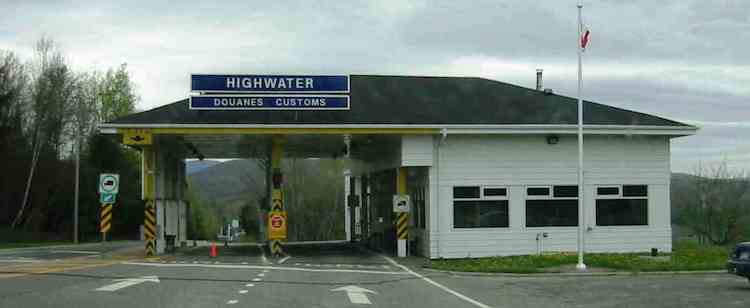Thoughts On US/Canada Cross-Border Shopping
I’m a Canadian living in Toronto. I’m not far from the American border (about an hour and a half of driving to the east or west, give or take a few minutes). Being in the technology industry – I am always coming across scenarios where a particular product is only available in the U.S. or the product may be significantly cheaper than it would be if purchased here in Canada. Even with our currencies almost at par, the lure of going to America to get the exclusive tech and bring it back is tremendous. While returning from a small road trip yesterday, I had some thoughts about cross-border shopping.
The best case-study for our need to shop across the border was probably the iPad. When it was released to the American general public in early April of 2010, those of use who wanted one in Canada had to wait until late May before Apple made it available. This created a two-month window that many Canadians used to purchase the device in the U.S., bring it back to Canada, and then sell it at an extremely high price.
Helpful things to know before you travel
1. NAFTA is useless – For the longest time, I had thought that NAFTA would help save duties on electronic components. The reality, however, is that it only helps with stuff made in North America. When nothing really cool is actually made on this continent, NAFTA does squat for you (source).
2. Stay that extra 24 hours – Truth is, determining what the tariff would be on a product is voodoo restricted only to Canada Customs (here is some info about this – and the super-detailed docs are here) – there are some ways you can turn a border crossing to your advantage. One of them that I thought of is staying in the U.S. for 48 hours or more. After 48 hours, your personal exemption goes from $50cdn to $400cdn (source). This means that you have to stay 2 whole days or more, which really pushes it to more like three days.
3. Go to Delaware – In my various travels, I have come across one holy grail of a U.S. State. The state of Delaware charges no state sales taxes. That’s right, if you buy something in the Newark, Delaware Apple Store, you’ll pay 0% state taxes. That’s a good deal, but the trip is a 9 and a half hour drive from Toronto. I have not, thus far, ventured to do this.
So, what do the scammers do?
I need to first say, what I’m describing is something that is extremely illegal. Doing these things may get you crazy penalties, a possible prison sentence and hell every time you try to get across the border. None of this is worth the pain! This all had me thinking as I was crossing the border – I thought about what those that manage to get goods across illegally do. I had purchased a belt and my sister purchased three pairs of jeans that we both declared without problem. I thought, what would a person trying to get high-priced electronics across do?
1. Buy it and hide it – This being the obvious, you by the stuff and hide it in your trunk and hope the customs agents don’t find it. Probably not a great idea, since those guys are likely using super space age scanners, who knows?
2. Buy it, open it, throw away the packaging and keep it like it was always your own – this is probably what happens the most – and it seems like the most difficult thing for the customs agent to figure out. I’ll give you a scenario. You go to the Apple Store, buy an iPad. Take it out out of the packaging and throw away the box. You keep the unpackaged iPad in your personal luggage. The customs agent, even when searching, would not likely be thinking that device wasn’t yours when you arrived in the country.
The above things are probably not being done in high volume, so there are probably other ways that others are getting away with this. There is no doubt though, this is a big business. In one case, I saw the new Apple iPhone 4 (which, was not available in Canada at the time) selling in Toronto for $1,900.00 CDN. The U.S. selling price is less than $600 US (without a contract).
What do you think? Have you had any experience with this? Do you think it’s even worthwhile to buy in the U.S. considering hassle and cost?


